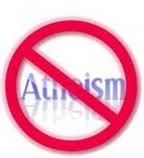THE MILLENNIAL CATHOLIC:
Welcome to part 2 of answering atheist objections. If you missed part 1, here's a link to get you up to speed.
Now, off we go:
2. "God's existence is proven by scripture."
This argument presupposes its premise. People believe in scripture and place value in the words because they already believe in the religious principles the text describes. There is no inherent value to the Bible, Quran or any other religious text; these documents are not self-authenticating in any way.
(Since when does proving something's existence or non-existence depend on whether written documents can authenticate themselves? If I were to tell you America broke away from England and I presented the Declaration of Independence as proof, why would you ever reject it on the basis the document itself can't prove that's what it actually says? Even if you could, does that mean I should reject what he just said because his words are not self-authenticating?
As far as this "people place value on what they already believe", how do you explain the Bible's call to be skeptical of claims, including [but not limited to] Jesus calling on people to test the Scriptures to check what He says, to test the spirits, and in some cases even states not everything in it is self-explanatory?)
In fact, many factual inaccuracies and inconsistencies can be found within religious texts themselves. For example, the Bible contains two separate creation stories, each of which provides a very different explanation. Similarly, there is no historical, archaeological or scientific evidence to support many of the stories in the Bible and the Quran.
(While I can't speak for the Quran, I do know the claim of the Bible having inaccuracies and inconsistencies has been debunked long ago. In fact, all--and I mean ALL--claims along those lines are ALWAYS a result of either poor translations, taking the verses out of context, or poor scholarship.
To prove this, here's a link that helps explain some common supposed contradictions.)
Ultimately, religious texts are infinitely fallible because they are man-made products of whimsy, poetry, mythology and some history woven together into a new whole. The texts in the Bible have been gathered from many oral sources over thousands of years and compiled arbitrarily into a single document; it's hardly surprising that the narrative would be so inconsistent. Other religious texts have similarly convoluted histories.
(Then doesn't that mean an equal and better case can be made his stand is also fallible, especially since experts don't agree with his reason, and furthermore don't think the thousands of years is a hinderance? Doesn't it seem like his is just chronological snobbery and nothing more?)
Aside from the problems with individual texts, there's also the obvious issue that the very presence of multiple scriptures negates the authenticity of any single religious document. It's impossible for every religious book to be true; it's highly presumptuous to assume that one's own preferred scripture is the single "true" scripture while all the others are false accounts. It's far more likely that every religious book is equally fictitious and unreliable.
(How does it negate it? Do fans of every NFL or NBA team claiming their team will win the championship negate the fact only group will be proven right? How does "impossible for all to be right" equate to "all are equally wrong?" Since when is it illogical to conclude if your stand is right, then others must be wrong? Isn't that what the author is doing?
And how come no library or book store or online shop puts religious texts in the fiction section? Could it be the rules governing book genres don't agree with him? I'd love to hear a good answer to this, but out of the 800 atheists I've asked, none of the 800 could come up with a believable answer.)

No comments:
Post a Comment